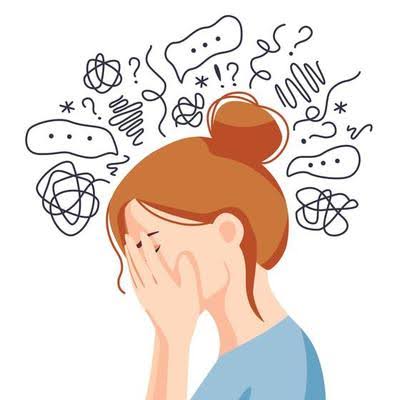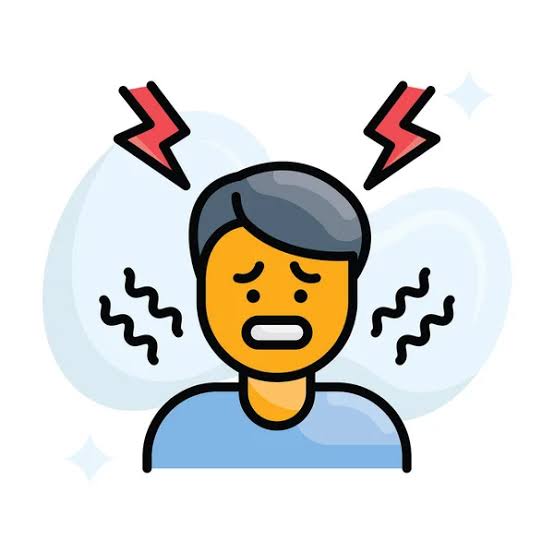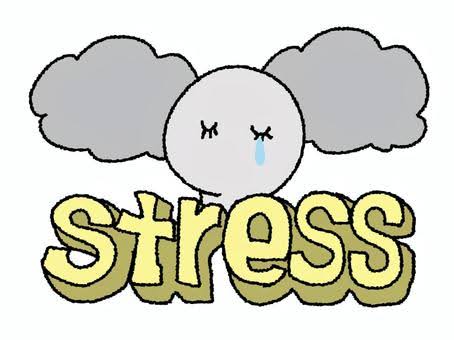Stress affects both our physical and emotional health and is a common yet complicated part of daily life. It is critical that we define stress at the outset of our journey toward stress management.
What is Meant by Stress?
Stress is a normal reaction to life’s responsibilities and triggers. It is how your body responds to obstacles and changes, both favourable and unfavourable. A certain amount of stress is healthy and even inspiring, but prolonged stress can be harmful to your well-being.

The Pathophysiology of Stress
Understanding how stress impacts your body biologically is crucial for managing stress.
Your body releases stress hormones like cortisol and adrenaline when it encounters a stressor, such as an impending deadline, money concerns, or even a personal matter. These hormones set off your body’s “fight or flight” reaction, readying it to respond to the circumstances. This reaction may be helpful in brief spurts, but prolonged stress can cause a number of health problems.
Types of Stress
There are many different types of stress, and each has special qualities and effects on your health.
1. Acute Stress: This kind of stress is the most prevalent and is brought on by sudden demands or difficulties. It is usually treatable and has a short duration.
2. Chronic Stress: Chronic stress can result from long-term exposure to stressors like a demanding work environment or a tense personal relationship. Your health is more frequently harmed by this kind of stress.
3. Episodic Acute Stress: Because of their personalities or ways of living, some people appear to be more susceptible to this type of stress.
4. Traumatic Stress: This is brought on by being around stressful incidents such as violent crimes, natural catastrophes, or accidents.
The Root Causes of Stress
In order to properly manage stress, it is essential to understand what causes it.
A wide range of things can lead to stress, such as:
1. Work: Stress can be greatly increased by job-related demands, long hours, and strict deadlines.
2. Financial Concerns: Stressors related to money, debt, and stability of finances are frequent.
3. Relationships: Disagreements with loved ones, close friends, or romantic partners can be a major cause of stress.
4. Health Concerns: Managing a personal or family member’s illness can be stressful.
5. Life Transitions: Significant life transitions, such as moving, getting divorced, or losing a loved one, can be extremely stressful.
6. Environmental Factors: Stress can also be exacerbated by living in an unclean or noisy environment.
Risk Factors for Stress
There are certain things that can make you more susceptible to stress.
1. Personality Traits: Some people, such as perfectionists or extremely sensitive persons, are more likely to experience stress as a result of their personality.
2. Lack of Social Support: Friends and family can act as a powerful support system, reducing the negative consequences of stress.
3. Trauma: Experiencing trauma or abuse in the past may increase your susceptibility to stress.
4. Genetics: How you react to stress might be influenced by your genetic composition.
5. Coping Skills: It may be more difficult for people to properly manage stress if they lack strong coping mechanisms.
Recognizing Stress
The first step in handling stress is recognizing it when it occurs. There are many ways that stress can appear, so it is important to know what to look for. Typical indications of stress include:
1. Emotional Changes: Anger, impatience, and mood swings are all more prevalent.
2. Physical Symptoms: Distress in the muscles, headaches, and stomach problems.
3. Sleep Disturbances: Having trouble falling or remaining asleep.
4. Cognitive Impairment: Inability to focus and make choices.
5. Behavioural Changes: Reduction in social interactions, overindulgence in food, or increased use of drugs or alcohol.
6. Chronic Health Issues: Stress can cause or worsen long-term health issues like depression, heart disease, and high blood pressure.
Diagnostic Scale for Stress
Numerous diagnostic scales are available to assist people in determining their level of stress. The Perceived Stress Scale (PSS) is one such measure.
Perceived Stress Scale (PSS)
The PSS is a popular instrument for gauging how unpredictable, unmanageable, and burdensome people feel their lives to be. It asks ten questions about your thoughts and feelings from the previous month. A scale of 0 to 4 is used for each response, where 0 means “never” and 4 means “very often.”
Your results are totaled at the end of the test, and a greater number denotes a higher felt stress level. This tool is useful for patients’ self-assessment as well as for healthcare providers assessing patients’ stress levels.
Differential Diagnosis for Stress
While stress is a common experience, it’s important to rule out other conditions with similar symptoms.
1. Anxiety Disorders: The symptoms of stress might be mistaken for disorders such as panic disorder and generalised anxiety disorder (GAD). A thorough evaluation is necessary to distinguish between them.
2. Depression: Weariness and irregular sleep habits are common signs of both depression and stress. A mental health specialist can assist in differentiating between the two.
3. Physical Diseases: Stress-like sensations can be an indication of a number of medical diseases, including thyroid issues and chronic pain. A comprehensive medical assessment is required.
Homeopathic Medicines for Stress Management
1. Kali Phosphoricum: This remedy is appropriate for people who are extremely tense, agitated, and who feel anxious, apprehensive, or lethargic as a result of agitation, anxiety, or physical or mental strain. It is advised to take two tablets, three times a day, with a potency of 3x to 12x.
2. Ignatia Amara: Beneficial for people who are moody, depressed, or have a propensity to dwell in silence. They might sigh, cry, and feel the aftereffects of disappointment and sadness. Three pills, ranging in potency from 6C to 200C, should be taken three times a day.
3. Natrum Muriaticum: Suitable for people experiencing fear, rage, or grief that causes irritation and a need for privacy to weep. Three pills, ranging in potency from 12C to 200C, should be taken three times a day.
4. Coffea Cruda: Good for stress that is accompanied by anxiety, agitation, and extraordinary physical and mental activity. Three to five tablets of the 3C to 200C potency, three times a day, are advised.
5. Arsenicum Album: Suitable for tension accompanied by restlessness, causing the person to move around a lot and leaving them prone to confusion and chaos. It is taken three times a day, three pills in a potency of 3C to 30C.
With the ability to be customised to each person’s unique symptoms and constitution, these homeopathic treatments offer a comprehensive and individualised approach to stress management. Seeking advice from a qualified homeopath regarding the right remedy and dosage is crucial.
General Management of Stress
After discussing the definition, causes, risk factors, and diagnostic resources of stress, let us look at practical stress management techniques. Integrative medicines such as homeopathy can be a useful tool in your toolbox for managing stress.
1. Lifestyle Adjustments: Get into a regular exercise routine, eat a well-balanced diet, and get enough sleep. Stress can be lessened by focusing on these essential components of wellbeing.
2. Mindfulness and Relaxation Techniques: Stress can be relieved and the mind calmed by engaging in techniques like progressive muscle relaxation, deep breathing, and meditation.
3. Using Homeopathy to Manage Stress: Homeopathy is a comprehensive medical system that can treat stress at its source. The specific symptoms and constitution of each patient are taken into account when creating a homeopathic remedy. Effective stress management is possible with the prescription of remedies from a qualified homeopath.
4. Counseling and Therapy: When it comes to managing the emotional components of stress, speaking with a therapist or counsellor can be quite helpful. You can learn coping mechanisms with the aid of counselling services such as cognitive-behavioural therapy (CBT).
5. Social Support: Having a strong social network can give one emotional support and a feeling of community, both of which can lessen the negative effects of stress.
6. Time Management: Developing your ability to effectively manage your time and prioritise chores will help you feel less overwhelmed.
General Prevention of Stress
When it comes to stress, prevention is the best strategy. Putting stress-reduction techniques into practice before it gets out of control can greatly enhance your general wellbeing.
1. Recognize Your Triggers: Know the people or circumstances that usually make you feel stressed. Once these stressors have been identified, take steps to reduce or deal with them.
2. Self-Care: Give your own needs first priority. This entails having hobbies, setting aside time for yourself, and getting enough sleep.
3. Healthy Communication: Learn how to communicate effectively to express your needs and feelings in a way that is healthy and reduces stress and conflict.
4. Set Reasonable Objectives: Refrain from putting unreasonably high standards on yourself. Divide up the work into doable chunks and acknowledge your progress as you go.
5. Seek Professional Assistance: Do not be afraid to consult a homeopath, therapist, or healthcare provider if you are experiencing extreme stress.
6. Holistic Health: Take into account a holistic approach to wellness, like homeopathy, which can help with stress management as well as general wellbeing.

Your Wellness Guide to Stress
In summary, stress can be successfully controlled even if it is an unavoidable aspect of life. Gaining knowledge about its origins, identifying its symptoms, and pursuing appropriate care and preventive measures can greatly impact your general health.
With its all-encompassing approach to treatment, homeopathy provides a special and tailored means of addressing stress and its root causes, thereby assisting you in leading a more harmonious and stress-free life.
There are a lot of tools and experts available to help you on your path to living a stress-free life, so you do not have to deal with stress alone.
Reach out to us for a Consultation.
This blog is for information purposes. It’s crucial to note that while homeopathy is a centuries-old practice with many adherents worldwide, always consult a qualified homeopath or medical professional before initiating any treatment.
For any queries, reach out to us at contact@homeopathic.ai





